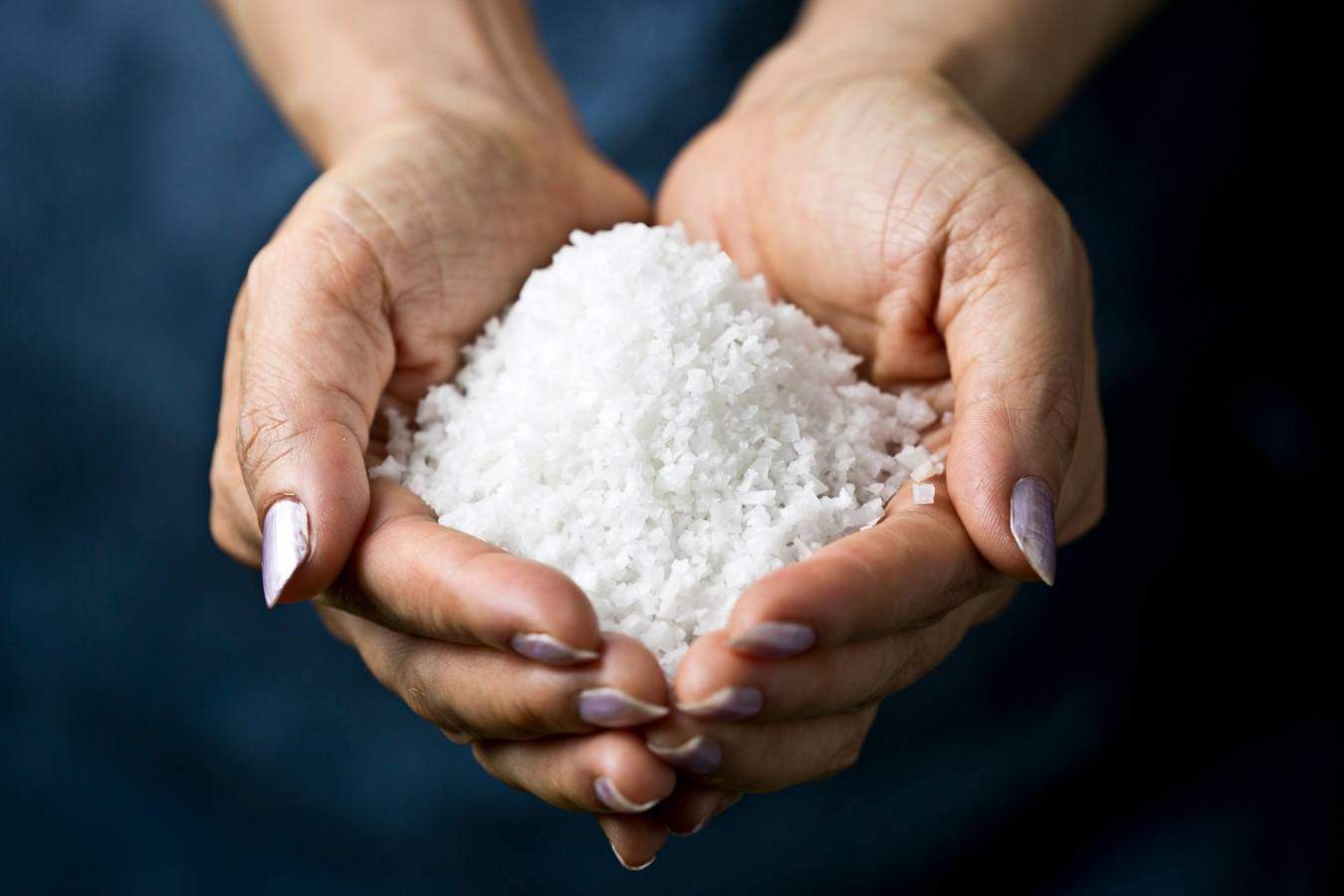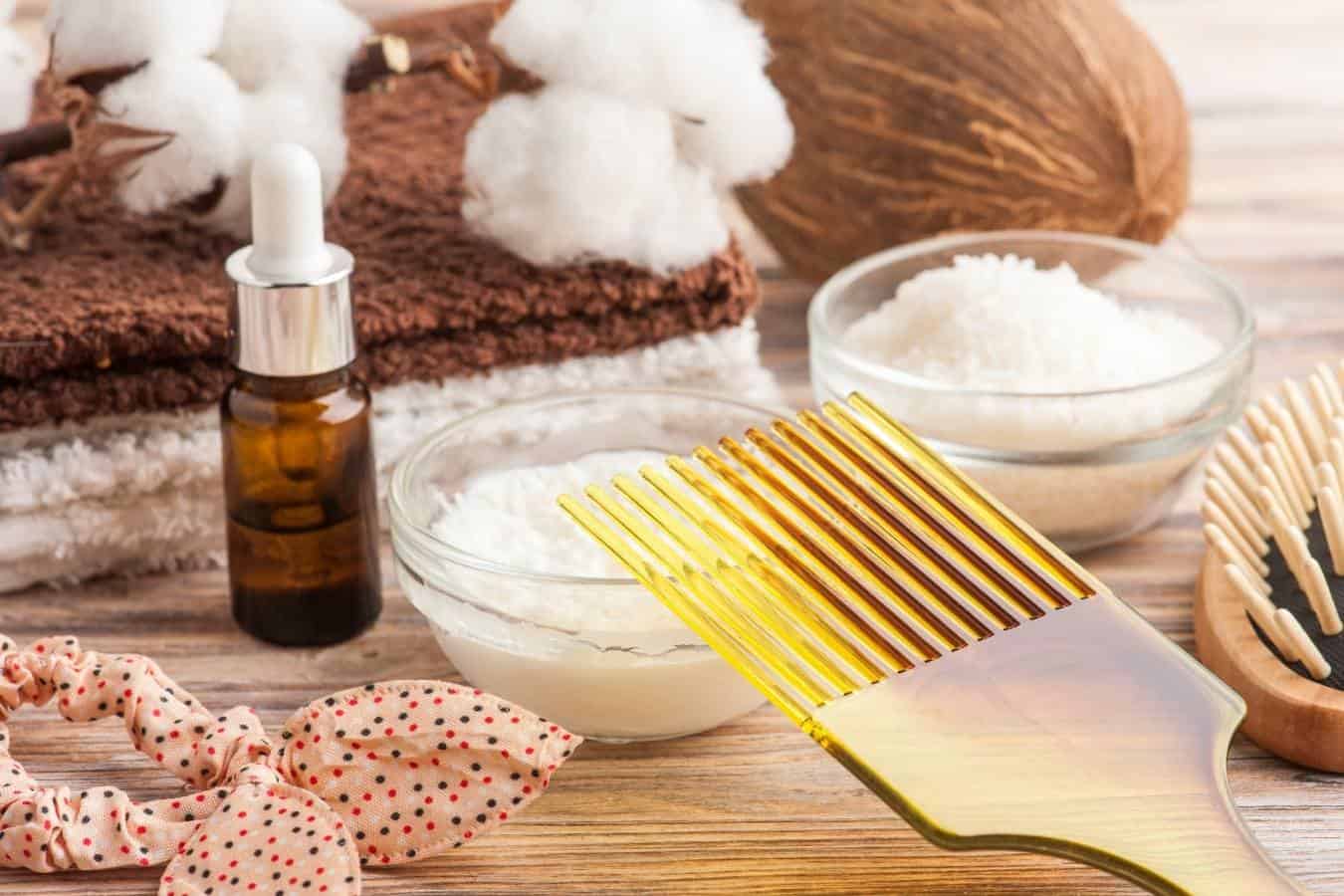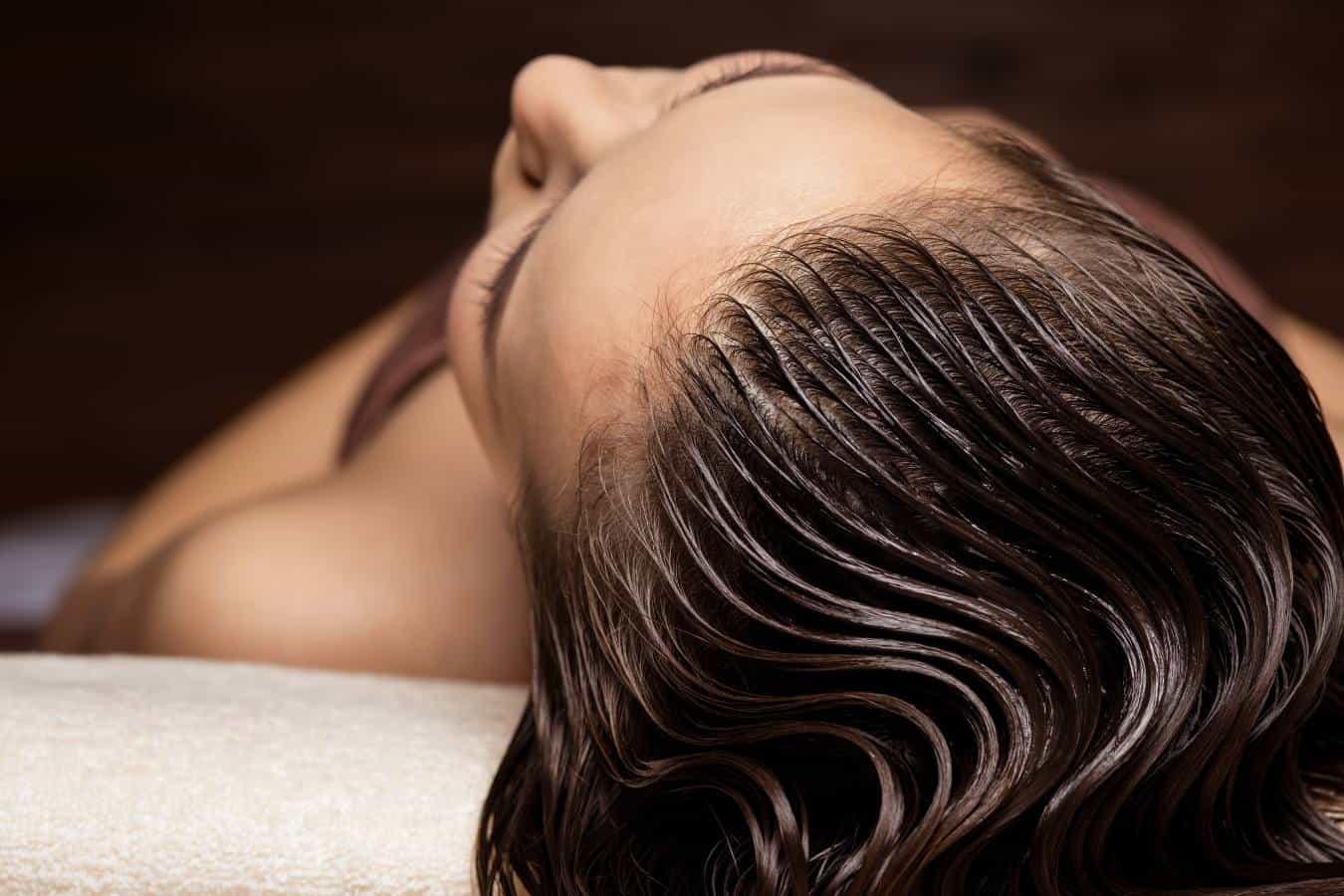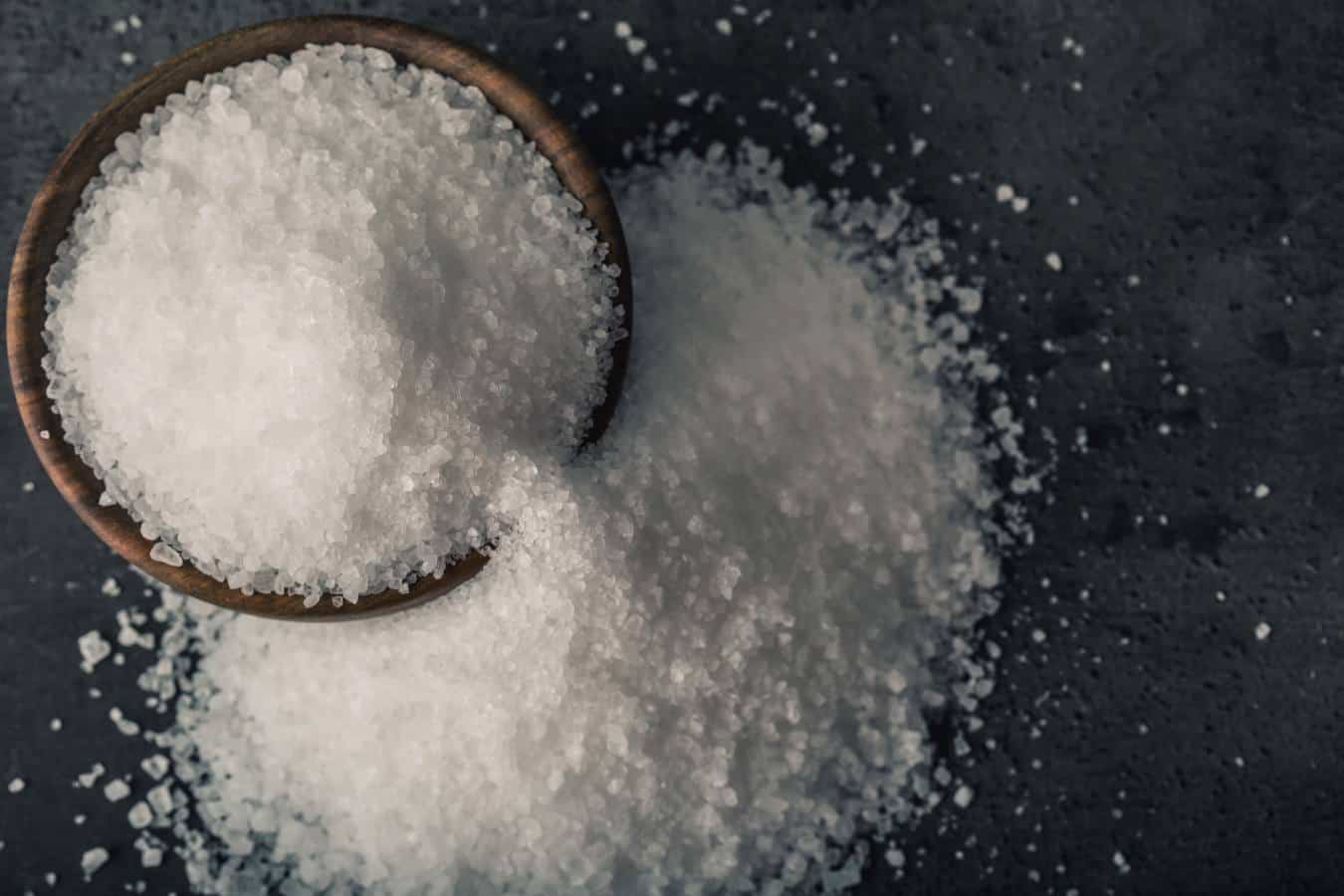Salt water is beneficial for both your skin and your hair. It’s cleansing, can help to fight bacterial and fungal infections, and is a great exfoliator. But can salt water give body to your hair?

A salt water rinse will give your hair volume and body, too. You just have to bear in mind that salt water will also wick moisture away from your hair strands, so it’s best washed out and followed with a conditioning treatment.
Benefits Of Salt Water On Hair
Salt water – whether sea water or a homemade salt water rinse – has many benefits for your hair.
These are just a few:
Cleansing
Salt water is deeply cleansing for hair.
You could even say it’s somewhat like a natural clarifying shampoo.
It works to remove any build-up of product, oil, or sebum from your scalp and strands, restoring your hair to its smooth, shiny self.
So, if you’re prone to greasy hair, or work out a lot and notice your scalp and roots getting sweaty, using a salt water spray can help.
The salt will wick away the excess moisture from the sweat, and it will also cleanse any oil build-up on your scalp.
Packed with nutrients
Salt water contains plenty of vitamins and nutrients, including potassium, selenium, and magnesium. All of these are beneficial for the body and mind.
Magnesium has a well-established link to helping balance anxiety, and potassium and selenium can support hair growth.
By using a salt water rinse on your hair, you’re helping your body to absorb these nutrients, and consequently supporting your more holistic wellbeing.
Exfoliating
A salt water rinse is exfoliating thanks to the salt crystals.
After having poured the salt water rinse over your hair, use your fingers to give your scalp a good massage.
You’ll need to follow up by ensuring the salt is all rinsed out of your hair, but giving your scalp a good exfoliate has many benefits, from providing an intense cleanse through to supporting hair growth.
Supports hair growth
Regularly using a salt water rinse may even help with hair growth. Follow the steps above and ensure that you’re giving your scalp a good massage.
The salt crystals will open up blocked pores and stimulate blood flow to the area, which in turn can help with hair growth.
Your hair will look healthier, shinier, and smoother as a result, and you may notice that it grows thicker and faster.
Antibacterial and antifungal
Salt water has antibiotic properties, making it ideal for individuals who suffer from dandruff, scalp sensitivities, or itchiness.
The salt water wicks away excess moisture in the scalp. This forces the fungus that can cause dandruff to grow more slowly.
As a result, you’ll have less dandruff, and your scalp will feel healthier overall. If you suffer from eczema or psoriasis on the scalp, salt water can also help, as it’s healing and will soothe any irritation.
Will A Salt Water Rinse Give Body To Your Hair?

Yes, a salt water rinse will give your hair body.
As detailed above, salt water contains a myriad of nutrients.
Hair is made up predominantly of the protein keratin (that’s why so many hair care products and treatments are keratin-based).
In between the keratin, there are crosslinks of amino acids – that’s what comprises the structure of hair.
The nutrients in the salt water (most specifically sodium chloride and magnesium sulfate) create extra crosslinks in your hair.
This is what gives your hair body and volume, as well as creating those much-desired beachy waves.
How To Do A Salt Water Rinse

There are a number of ways that you can do a salt water rinse.
Alternatively, if this seems too labor-some, you can create a salt water spray with a spray bottle, which is a quick and easy way to give your locks that salty boost.
For Easy Volume
- Grab a spray bottle and add a tablespoon of sea salt with 200ml of water.
- Remember that the salt will dissolve better in warm water, but be sure not to use anything overly hot on your scalp or hair!
- You can then spritz this on whenever you feel that your hair could do with some more body.
For Cleansing
- Mix two parts castile soap with three parts of salt. Ensure that the salt is well dissolved.
- You can then use this as a natural clarifying shampoo in place of your regular shampoo.
- Remember not to overuse it, as it can be drying.
For Treatment Of An Itchy Scalp
You’ll need your spray bottle for this.
- Mix one tablespoon of sea salt and water.
- Add a tablespoon of coconut oil and a tablespoon of leave-in conditioner, and ensure that everything is well-mixed.
- Spray this on your scalp every so often, and allow it to sink in. It will help to soothe any sensitivities or itchiness.
For Exfoliating
- Mix two parts sea salt with one part of shampoo.
- Apply this to your scalp, and use your fingers to create a serious lather, working the mix into your roots and scalp.
- Rinse off with cold water, and repeat every month or so.
Precautions When Using Salt Water

Whilst salt water has benefits for the skin and hair, you shouldn’t be using it every day, otherwise you’ll be overexposed.
If you take the following precautions, you should find that a salt water rinse will help, rather than hinder, your hair’s health:
Rinse your hair after exposure to salt water
Salt water is drying. It’s for this reason that it’s great for people who sweat a lot, as it wicks away moisture.
However, if you’re prone to dry hair already, a salt water rinse may find you with dry, brittle, breakable locks that are very prone to tangling.
Salt wicks moisture away from your hair – it’s for this reason that your strands can feel super dry and look dull and flat after a salt water rinse or sea swim.
It’s also why you may find your hair forming more knots, as your strands will be both more fragile and less elastic.
Tugging at these knots with a hair brush will only exacerbate the problem.
You should therefore always wash your hair after a salt water rinse. It means that the salt crystals won’t remain in your strands for too long, so won’t dry your hair out.
If you’ve been swimming in the sea, this will also help to remove any sand from your tresses.
In order to counteract this drying effect, you can use a conditioning treatment prior to exposing your hair to salt.
You can use an all-natural one with ingredients like avocado, coconut oil, olive oil, honey, and even egg. Alternatively, you can simply purchase a deep conditioning mask from your local drug store.
Don’t use salt water if your hair is colored
If you’ve recently bleached or colored your hair, you need to avoid salt water.
The process of coloring and bleaching hair damages it, making your strands more prone to dryness and breakage.
Adding salt water to the mix may well end up with your strands looking and feeling seriously dehydrated and dull.
The salt water will also fade your color significantly faster – or at least make the color look uneven.
If you are determined to swim in the ocean or use a salt water rinse with colored hair, try coating your strands in a hair oil.
This will provide a protective barrier between your locks and the water, and will mitigate the effect of the salt.
Remember, too, that it’s beneficial to use a UV protectant for hair if you’re swimming in the ocean.
This will minimize any damage caused by the sun, and will also help to protect your color.
Disclaimer: This site is not intended to provide professional or medical advice. All of the content on LovedByCurls.com is for informational purposes only. All advice should be followed at your own discretion. Ingredients may change at any time so always check the product label before using. Check our full disclaimer policy here.
